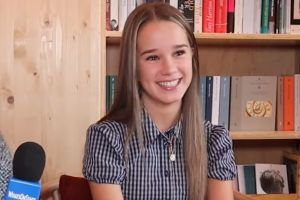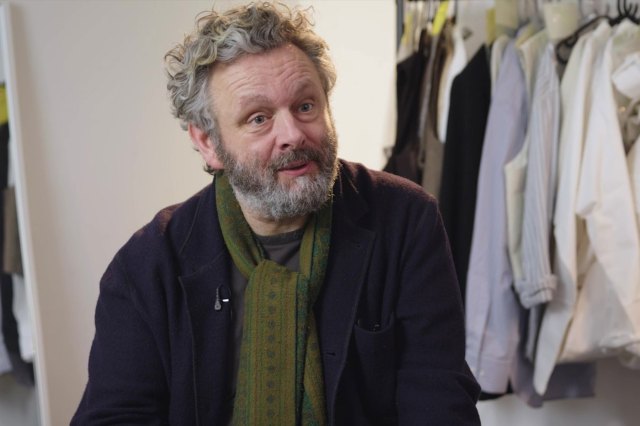Year of the Producer Blog: Stage One – Multi-Tasking
Inspired by our adoption of Stage One as the charity for the 2012 Whatsonstage.com Awards,
we’re declaring this the “Year of the Producer” on Whatsonstage.com,
and are running a 12-month editorial series of interviews, blogs and
other features to give theatregoers a greater understanding of the
crucial role of the producer and an insight into the people who put on
the shows they love.
In this blog post, Stage One apprentice Ellie Collyer-Bristow, who is currently on placement as a production assistant at Playful Productions, describes the transition from unpaid fringe work to commercial producing.
My transition from working hand-to-mouth as a freelance casting director/producer on the Fringe to working in a large commercial production office has come as a welcome shock to the system.
Of course there can be days/weeks when, like many actors, you find yourself at a complete loss for work, you wake yet again asking yourself that age old question ‘Will I ever work again?’ but at other times you find yourself working flat-out and often in fairly bizarre conditions: Suddenly you need to find a ginger-haired 50 year-old woman who can do a cockney accent, play the bassoon to Grade Five standard and is available to start rehearsals tomorrow, so you rise to the challenge, get a breakdown out to the agents, rack your brains for any actors of the above description you’ve seen in past productions and make it happen.
You find yourself responding to work emails in the wee small hours of the morning having returned from a play or an evening production meeting, after only five hours sleep you are trying to shave bits off your budget to actually make your current production financially viable whilst simultaneously filling out a funding application that’s due in at midday, you then spend the remainder of the day dashing from brainstorming session with the director, to auditions, to a venue visit, all-the-while transporting some of the most obscure props with you that need dropping off at the end of the day (a saddle, shepherd’s crook and even a coffin have all made their way across London with me before).
On top of all that you are constantly remembering that whilst you’re in work you need to peddle your wares for future work. Sometimes it can be relentless, the eye twitch takes over, you’re dreaming about spreadsheets in your sleep, and the word ‘weekend’ becomes completely meaningless as you turn your hand to babysitting, catering, gardening for family members… anything to make sure that the rent gets paid on time. Unfortunately, making the decision to work freelance means that you only have yourself to blame if the bills aren’t paid.
So why do it? That day-in-the-life-of surely sounds utterly bonkers. You do it, or at least I did, because you can’t resist fully immersing yourself in the industry. I began solely as a casting director, being employed by various production companies to piece together the casting jigsaw puzzle, but after a while I couldn’t resist the urge to produce my own work with likeminded passionate, industrious individuals.
On the Fringe, where the budget doesn’t afford you vast teams of specialised personnel, being the producer doesn’t simply mean that you’re the money man (a common misconception). Often you are doing ten people’s jobs and need to understand how to work the lighting board, do your own PR, create a production website, take down stage directions and most importantly to act as a mother figure to your whole company, constantly listening and responding to them to make sure that everyone remains a happy family. For me, to be a successful producer on any level you have to have a decent understanding of every aspect of the production.
I have been at Playful Productions for nearly two months and admittedly, it is the first time that I’ve worked in a proper office… so it has been eye opening in more ways than one. For starters my computer skills have increased ten-fold! I’m being introduced to new systems and individuals and have important duties across multiple productions. I am realising how carefully each cog needs to be crafted to insure the smooth running of a commercially successful production, and much much more.
The work load is often just as challenging, but through the Stage One scheme I am able to get everything done without shouldering all of the responsibility and panicking about how next month’s council tax is going to be paid. I work within fairly standard office hours Monday to Friday rather than 24/7 and am learning the most precious lesson a young producer can about work/life balance.
Resurrecting the true meaning of “weekend” has meant that I’m able to feed my creativity by reading more books, visiting art galleries, and most importantly allowing me the time and freedom to realise what direction I want my theatre making to go in. It’s okay to work at full speed from time to time but if you’re not careful it swallows you whole. It may well be that I return to working freelance after my apprenticeship placements but if/when I do I know that my approach will be somewhat different.
For more articles from our Year of the Producer series, visit whatsonstage.com/yearoftheproducer
For further information about the producers taking part, click here.












